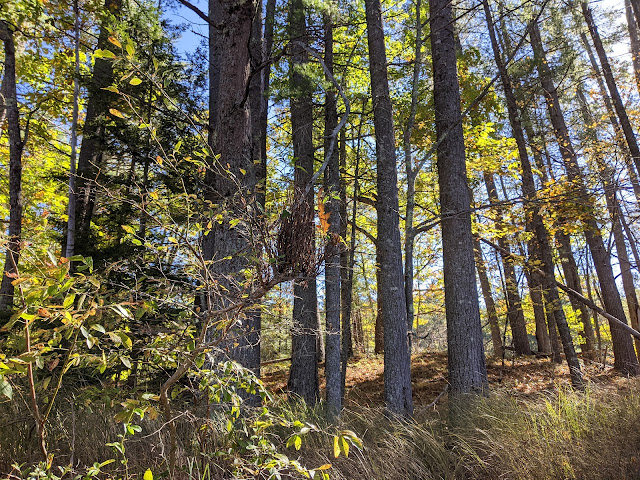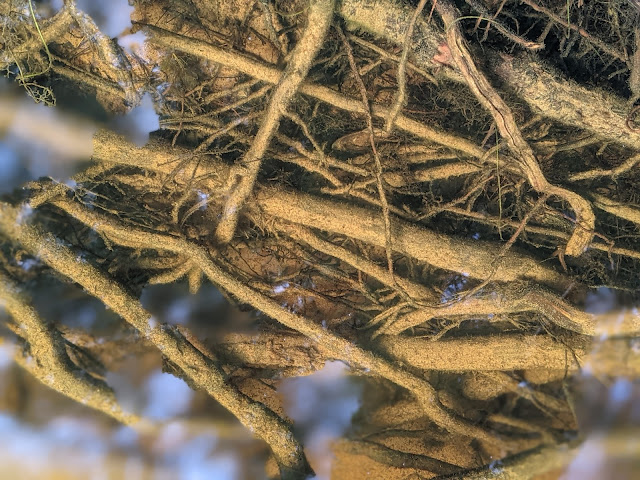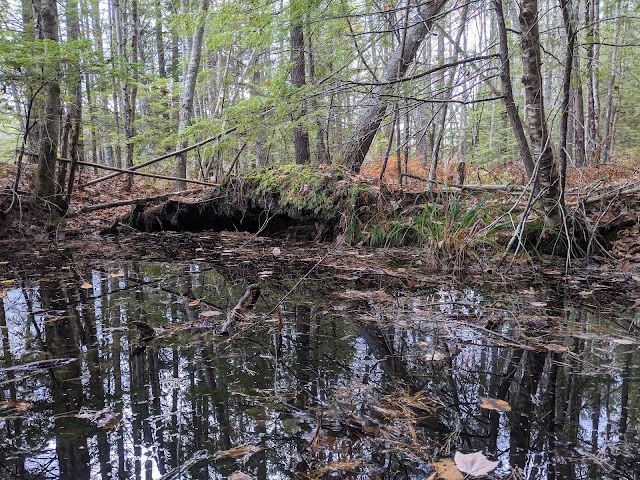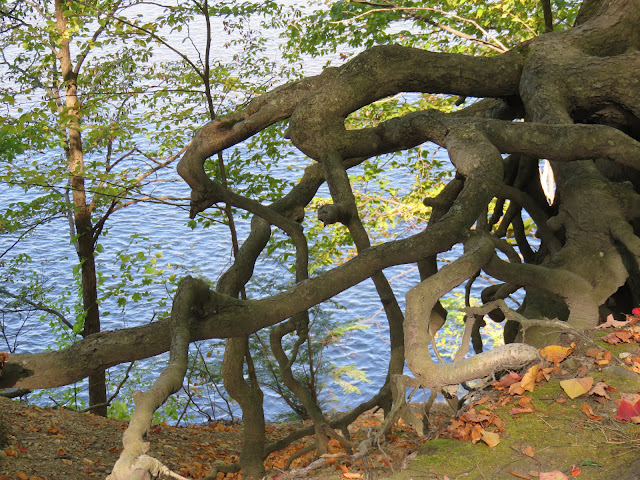I'm re-reading The Overstory by Richard Powers, having just finished it. I found it compelling, relatable and enlightening. I can see that it's not for everyone, that it may expose me as a crackpot (as some of its kooky characters are, but that's common in many stories, not just those about trees), and that many readers may find it boring.
To me, it's an amazing piece of work about our disconnect from nature. It's about human characters and old growth forests, of their community and connectedness, but told as a piece of fiction! Powers is incredibly skilled at weaving forests and trees into people's everyday lives and relationships. It's so moving. I LOVE it. The factual information expressed through the characters' dialogue and experiences often hit me in the gut and strike a sensitive chord in my soul.
One of his characters exclaims, "Improve forest health! As if forests were waiting all these 400 million years for us newcomers to come cure them."
"Dead logs are far more alive than living ones" - while this is not new to me, it's potent, nevertheless. It resonates. We need to remember that what looks untidy to us is actually a paradise for other life forms:
One tree-hugging character lets us know that planting new trees to replace what we can allowably cut each year, is like "putting in babies so they can kill grandfathers" - a way to gain 'good citizen points' and ease our consciences. In the case of redwoods, some of these grandfathers can be between 500 and 700 years old. Where's the morality in that?


Up until relatively recently, we didn't understand just how much of a collaborative community the forest components are, of how interconnected and intertwined a forest ecosystem is. Redwoods, for instance, have relatively shallow roots for such a huge tree, but they merge and fuse with other roots to hold them in place securely, creating an underground grove. Phenomenal!
There's a whole functioning interlocking community under our feet that we don't see - understanding what's under the ground is like finding out about and exploring space, or underwater ecosystems. It's just not visible to us, but doesn't mean it's not there or isn't critically important.
Another character refers to the fact that we seem to have zeroed in on harvesting the 'cheapest priceless stuff that ever has been.' Think about that! A most exacting oxymoron. I'm slammed by sympathetic grief. It's sad, and damning, ...
There are so many take-aways from reading this book - but realizing that we are a PART of the whole of nature, not owner of the whole, not separate from the whole, is what I feel mostly. We are selfish and greedy, as if there are no repercussions for our actions. But, I preach ... The author expresses it better in an interview, “Every form of mental despair and terror and incapacity in modern life seems to be related in some way to this complete alienation from everything else alive. We’re deeply, existentially lonely."
I'm savoring feeling mesmerized, and enthralled, and captivated, after reading this beautiful book. It was Nietzsche who addressed our intellectuality as "we have to learn to see," and this book helps us do that.

I really enjoyed reading this review on LITPUB by Somdutta Sarkar:









No comments:
Post a Comment